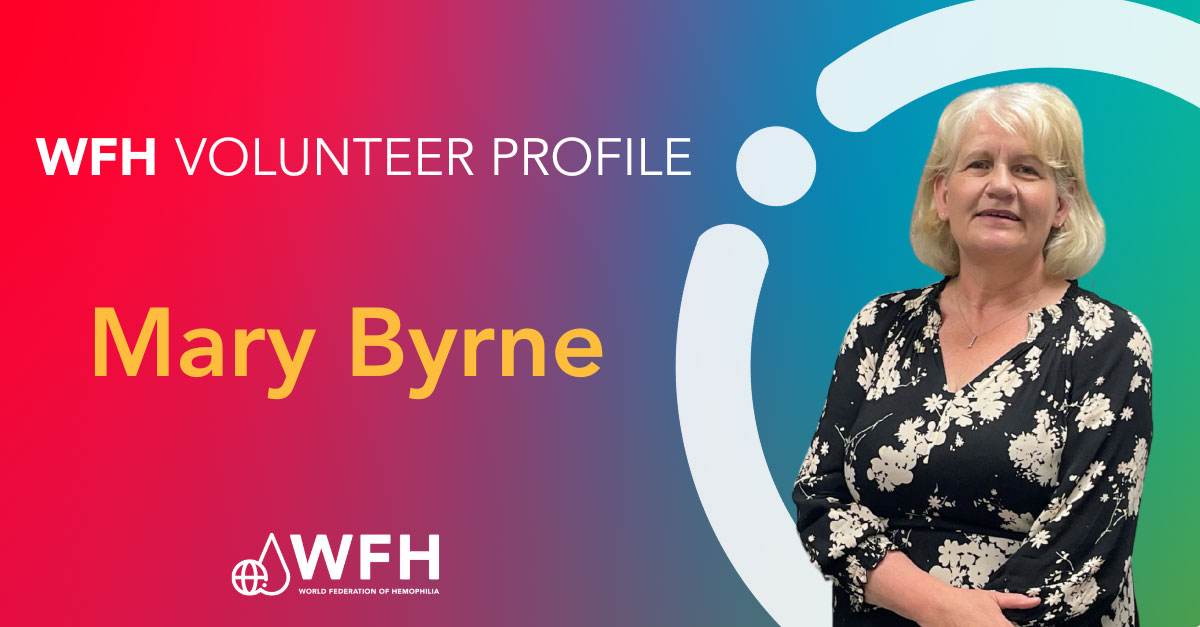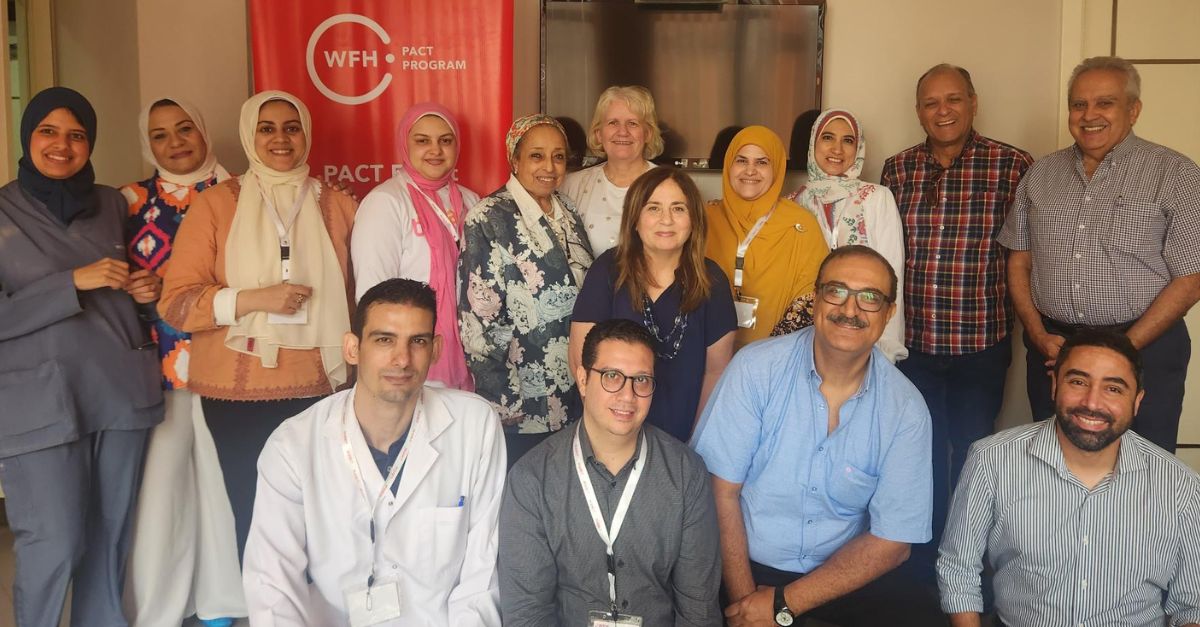Today, we are profiling a WFH volunteer who has generously given—and continues to give her time to the global inherited bleeding disorders community. Read on to hear the story of Mary Byrne, a laboratory scientist from Ireland.
When did you first start volunteering within the bleeding disorders community and in what capacity?
In 2019, I became involved in volunteering with the federation through the WFH Twinning Program. I travelled from Ireland to Amman, Jordan, as part of a multi-disciplinary team that collaborated with local hemophilia treatment centres (HTCs) and the Jordanian Hemophilia and Thalassemia Society. Working alongside the laboratory team at Al-Bashir Hospital, I helped implement new test methods through training workshops. The collaboration continued remotely during the Covid-19 pandemic and later with in-person visits. In 2022, our team was honoured with the WFH Twinning Program Twins of the Year Award.
I also volunteered as a laboratory trainer in Cairo, Egypt and travelled there in 2023 as part of the WFH Path to Access to Care and Treatment (PACT) Program to deliver this training and also take part in multi-disciplinary team (MDT) training sessions. I collaborated with the main laboratory beforehand to focus the training approach in order to make it as useful as possible. The training focussed on the implementation of advanced coagulation test methods including the detection and quantitation of inhibitors in patients with hemophilia and enhancing proficiency in the performance of laboratory tests in big and smaller cities.
You have been a volunteer for the WFH for some time. What has motivated you to give your time to our cause?
The WFH vision of “Treatment for All” deeply motivates me. As a laboratory scientist specializing in coagulation testing, I believe diagnosis is critical to care. Sharing my knowledge through training workshops and collaborations allows me to contribute to equity in healthcare for people with bleeding disorders worldwide.
What has volunteering globally taught you?
The healthcare experience for a person with a bleeding disorder is dependent on the availability of local resources including those required for diagnosis and the monitoring of treatment. By organizing workshops and teaching sessions, improvements to laboratory services can be made even in resource-limited settings. Each partnership has been mutually beneficial, with shared learning that I’ve brought back to Dublin to emphasize the importance of resourcing laboratory services everywhere. I am still eager to continue fostering these connections and expanding my volunteer work.
What advice do you have for anyone who might be thinking about volunteering with the WFH or their NMO?
Becoming a volunteer with the WFH or your national member organization (NMO) means opening yourself to new relationships and valuable collaborations that can take place at both the national and international level. To make the most of this opportunity, it is important to clearly understand the expectations of all parties so you can actively contribute to achieving the partnership’s goals. For international volunteering, learning how the health system in your partner country operates—and how people with bleeding disorders access care—is essential. This awareness helps focus your time and efforts on the areas of greatest need.
Volunteering with the WFH has been immensely rewarding. There is something special about feeling that you are a vital part of the vision of the WFH—and that you can contribute meaningfully to it. I highly recommend that people give some time out to engage with the WFH.
Read about more WFH volunteers
To find out more about volunteering with the WFH, click here. To read about other WFH volunteers who have had an impact on our community, see below:
- To read the story of Deon York (New Zealand), a former WFH board member, click here
- To read the story of Sukesh Nair, MD (India), a former WFH committee chair, click here













